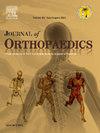人工智能对医学文章写作的影响:是利还是弊?
IF 1.5
Q3 ORTHOPEDICS
引用次数: 0
摘要
随着人工智能在众多领域的不断发展,它为未来的学术出版带来了令人兴奋的机遇和独特的挑战。人工智能(AI)是计算机系统执行以往由人脑完成的任务的方式,如学习、解决问题和决策。在医学写作领域,人工智能正被各种应用所利用。人工智能与医学写作的日益融合引发了一场激烈的争论,专家和利益相关者在人工智能是促进进步的宝贵工具还是对科学出版物的完整性和质量构成潜在威胁的问题上意见不一。支持者认为人工智能具有简化研究、提高效率和拓宽知识获取渠道的潜力,而批评者则对其道德影响、剽窃风险和研究人员分流的可能性表示担忧。因此,关键是要承认人工智能既有可能带来好处,也有可能带来坏处,必须认真考虑其伦理和实际影响,以确保其负责任地、有益地融入医学写作领域。本文章由计算机程序翻译,如有差异,请以英文原文为准。
The impact of artificial intelligence on medical article writing: A boon or a bane?
As artificial intelligence continues its ascent across numerous sectors, it presents both exciting opportunities and unique challenges for the future of academic publishing. Artificial intelligence (AI) is the way of computer systems to perform tasks that has been done by human brain before, such as learning, problem-solving, and decision-making. In the realm of medical writing, AI is being harnessed through various applications. The increasing amalgamation of AI into medical writing has ignited a fervent debate, with experts and stakeholders divided on whether it represents a valuable tool for progress or a potential threat to the integrity and quality of scientific publications. While proponents celebrate AI's potential to streamline research, enhance efficiency, and broaden access to knowledge, critics voice concerns about ethical implications, the risk of plagiarism, and the potential for deskilling among researchers. Therefore, it is pivotal to acknowledge that AI has the potential to be both a boon and a bane, and its ethical and practical implications must be carefully considered to ensure its responsible and beneficial integration into the spectrum of medical writing.
求助全文
通过发布文献求助,成功后即可免费获取论文全文。
去求助
来源期刊

Journal of orthopaedics
ORTHOPEDICS-
CiteScore
3.50
自引率
6.70%
发文量
202
审稿时长
56 days
期刊介绍:
Journal of Orthopaedics aims to be a leading journal in orthopaedics and contribute towards the improvement of quality of orthopedic health care. The journal publishes original research work and review articles related to different aspects of orthopaedics including Arthroplasty, Arthroscopy, Sports Medicine, Trauma, Spine and Spinal deformities, Pediatric orthopaedics, limb reconstruction procedures, hand surgery, and orthopaedic oncology. It also publishes articles on continuing education, health-related information, case reports and letters to the editor. It is requested to note that the journal has an international readership and all submissions should be aimed at specifying something about the setting in which the work was conducted. Authors must also provide any specific reasons for the research and also provide an elaborate description of the results.
 求助内容:
求助内容: 应助结果提醒方式:
应助结果提醒方式:


